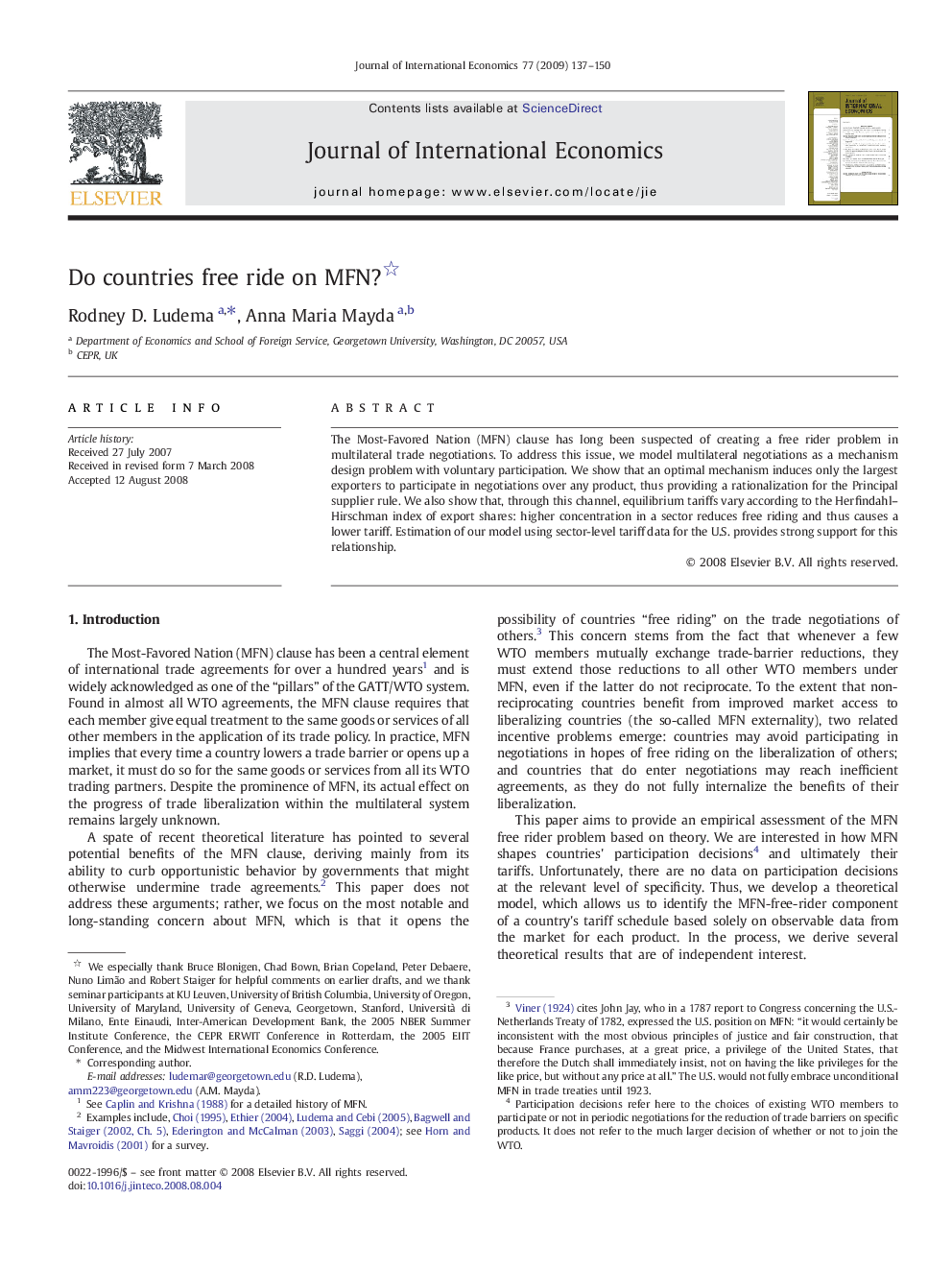| Article ID | Journal | Published Year | Pages | File Type |
|---|---|---|---|---|
| 962450 | Journal of International Economics | 2009 | 14 Pages |
The Most-Favored Nation (MFN) clause has long been suspected of creating a free rider problem in multilateral trade negotiations. To address this issue, we model multilateral negotiations as a mechanism design problem with voluntary participation. We show that an optimal mechanism induces only the largest exporters to participate in negotiations over any product, thus providing a rationalization for the Principal supplier rule. We also show that, through this channel, equilibrium tariffs vary according to the Herfindahl–Hirschman index of export shares: higher concentration in a sector reduces free riding and thus causes a lower tariff. Estimation of our model using sector-level tariff data for the U.S. provides strong support for this relationship.
